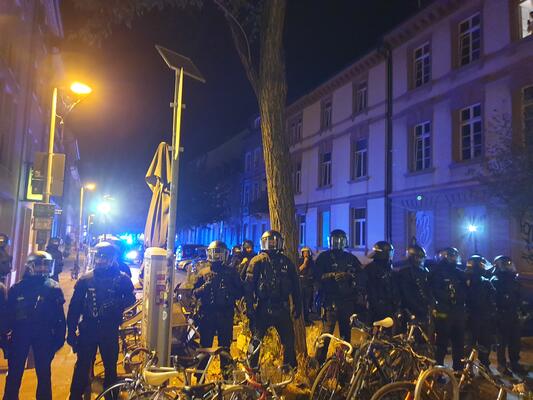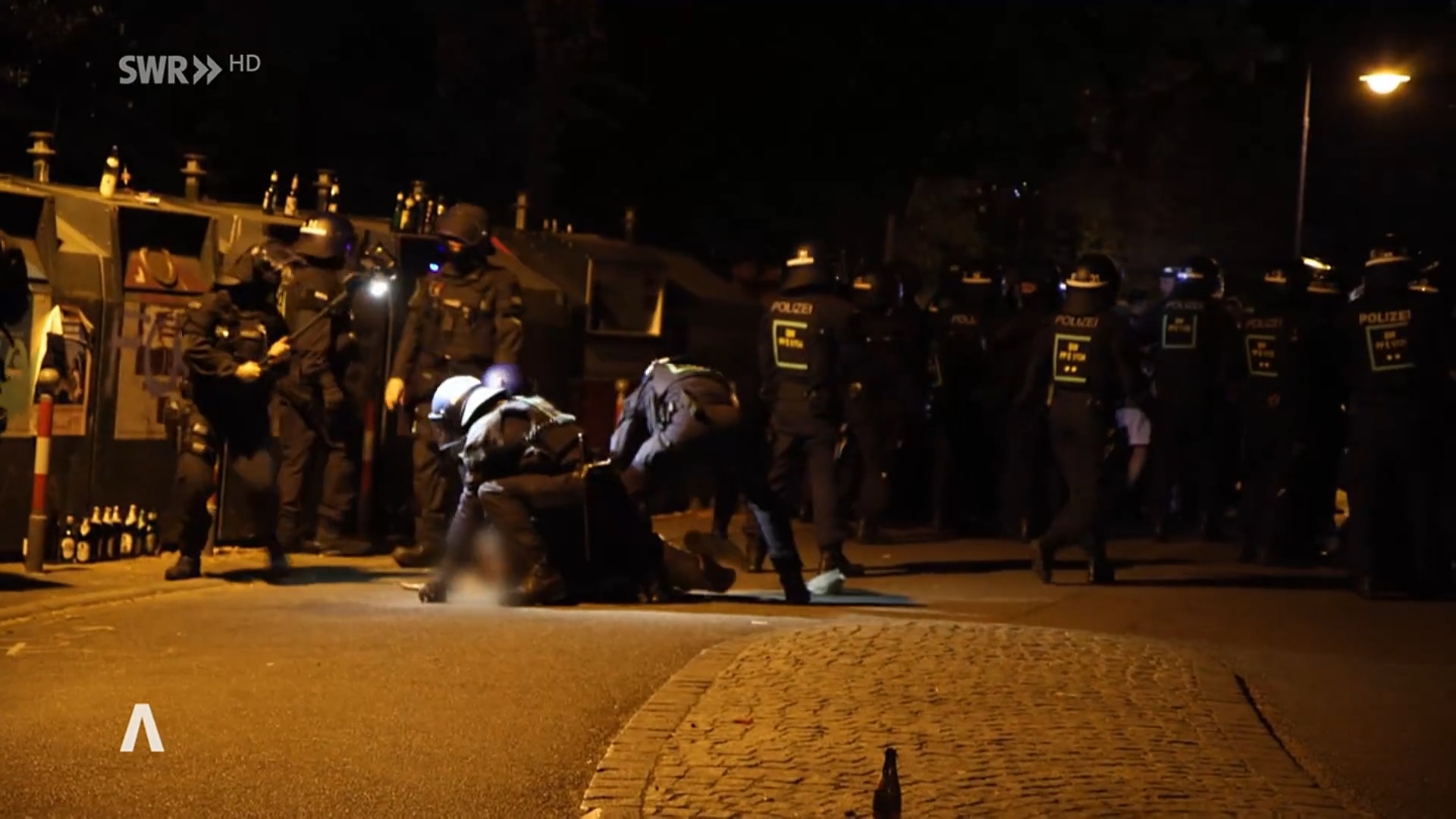Last weekend there was a lot going on in Freiburg. On Friday the 16.06 there was to be a spontaneous hip hop concert in the city garden. Afterwards, on Saturday 17.06, there was a big night dance demonstration in which a public square was briefly occupied.
Both events were directed against the expulsion from public space and were accompanied by attacks on the freedom of assembly and by large martial operations of the police, whereby they also violently proceeded against the protesters.
In recent years, Freiburg has seen a frequent development of partying youth being pushed out of the cityscape and public spaces. The latest expression of this is a nightly ban on Bluetooth loudspeakers and musical instruments in public parks, which was passed on 17.05. Among many young people in Freiburg, this new ban is met with indignation and resistance and protest against it is developing in various ways. One form of protest that developed was said night dance demonstration on June 17. This was banned a few days earlier by the city through a general order. The reason given was that "public safety and order" were directly endangered by the gathering. In the same way was also proceeded against the protests against the Antifa East trial at the beginning of June in Leipzig. With a general order, which makes it illegal to go on the street and demonstrate. Both cases were definitely major attacks on the fundamental right of freedom of assembly and join the increased attacks on democratic rights and freedoms that we have observed in recent years. The fact that now in Freiburg these measures are being used against a dance demonstration, is nevertheless, to put it bluntly, quite absurd and clearly shows that these attacks will continue. Also in other situations there was in recent years more often the approach to simply ban demonstrations and protests. But that now even young people who organize a dance demo for free spaces are confronted with a ban on this demo clearly shows that the right to take to the streets will have to be fought for more and more often against the rulers in the near future.
The will to abolish the freedom of assembly was shown by the city of Freiburg last weekend not only with the bureaucratic ban on protest, but also with a very large police contingent, which had the task of immediately preventing any form of protest. Already on Friday, they were deployed in the city garden when several hundred people met for an unannounced hip hop concert under the motto "Music and culture cannot be suppressed, hip hop remains resistant". The police forcefully stormed the crowd with armored units and confiscated several loudspeaker boxes, a computer and the loudspeaker van. They also attacked the right of assembly when they refused to allow the filing for a spontaneous assembly. This they did simply on the claim that an assembly was not objectively present. The fact that banners, signs and a protest call clearly prove the intention to express a common opinion was simply ignored. When subsequently a spontaneous demonstration arose from the crowd, the police tried to stop it as well, which the masses did not allow.

Also the next day, an extremely high police contingent was visible in Freiburg. A few hours before the demonstration, the whole neighborhood in Stühlinger was occupied by the police. There were police cars at every intersection, from which people were arbitrarily checked as they passed by. When the people formed up for the night dance demonstration despite the ban, the police first closed all ends of the street and called on the masses to leave the street, to move away from the crowd. When this demand was not met, the police decided to let the protest go. Apparently they had underestimated the size of the activity in advance, because at its peak, according to the police, around 3,500 people took part. Nevertheless, the police did not miss the opportunity to stop the demonstration several times and even attack it once. At the end of the dance demo, the crowd occupied Alfred Döblin Platz and people began to sit down there and celebrate. However, the police stopped this very quickly and cleared the square also by force. Several people were also injured by the police and two people were arrested and taken to the nearest police station.

Many bourgeois media simply present such events as if the party people just want to party and the fight for free spaces is not a political struggle. But the struggle for public spaces is a clear political struggle. A struggle directed against the displacement of poor youth, a struggle for the squares of our cities to belong to the people. Among the masses, this has great relevance. This could be seen in recent years, when such struggles developed into real street battles between the youth and the police. A well-known example from Baden Württemberg is the events surrounding the so-called "Stuttgart riot night" in the summer of 2020. Even if a "dance demonstration" is perhaps not the ideal form of protest, it could certainly reach larger parts of the masses. 3,500 people who were on the street in the context of this are many people by Freiburg standards. This high number of participants, despite a ban issued by the city, shows very clearly how present the issue of displacement and the struggle for free space is among the youth.










